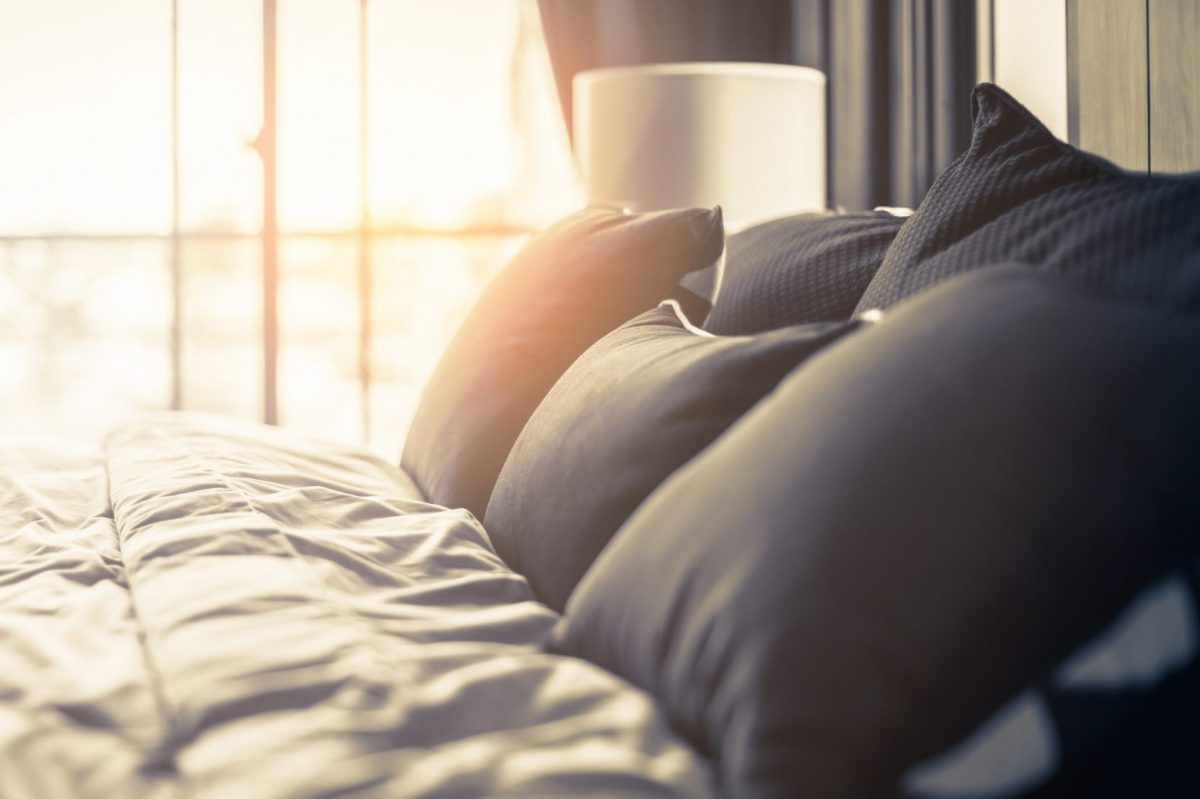Skift Take
No one wants to pay ultra-luxe prices and be forced to think about bugs when they’re on vacation. That’s exactly why Valpas hopes it's created a better bug trap to allow guests to have a pest-free stay.
Valpas, a Finnish startup that helps dozens of luxury hotels combat bedbugs, is telling investors it’s built a better trap in an unlikely way. It uses the so-called internet of things, or the linking up of devices online to share relevant data and enhance the efficiency of the process.
“Valpas is a new hygiene and safety standard for hospitality, a mix of hardware, software, and label,” said Martim Gois, co-founder and CEO of Valpas. “The product is integrated into bed structures and scans the room, connecting the bed legs to each other and forming a mesh IoT [internet of things] network. Through the network, the hotel is notified about their rooms in real time.”
Founded in 2013, the company — which uses traps hidden in custom legs for the beds — closed a $1.74 million (€1.6 million) funding round in February. Investor ActivumSG Ventures led the round, backed by TESI, Realty Corporation, Maki.vc, Icebreaker.vc and Reaktor. Valpas has raised a total of $2.38 million (€2.2 million) in venture funding to date.
The monetary sum is less eye-catching than its high-end clientele. The startup has signed 150 hotels flagged under premium brands including Pestana Hotels and Resorts, Autograph Collections, and Design Hotels in over 20 European cities.
Valpas works because it’s based in science — more specifically, the behavior of bugs. Bed bugs are attracted to human blood, so once they sense the constant stream of CO2 emitted in human exhales, they move towards it. Valpas’s bed legs further attract the critters through a specially designed collar and coating. Once the bugs start crawling up the leg, they fall inside and are captured in a small cavity.
It’s also a system that works proactively, instead of the reactive response hotels use with standard pesticide treatments. In the past, hotels would realize they have bed bugs weeks after they’ve been introduced, and by then, they have an infestation — insert pest control, who is already too late. Prior to Valpas, there was no way to guarantee customers safety from these parasites, but now hotels have the option to assure their guests that they’ve managed the problem before it even becomes one.
Not only is the typical response to pest problems retroactive, but the team at Valpas quickly realized that the greenhouse gas footprint of these pesticides and the companies that provide them is equal to over half the current environmental footprint of all fossil fuel companies.
Running a Valpas member hotel makes it effortless for hoteliers to contribute to the hospitality industry’s transition into more sustainable, fossil-fuel free operations.
The installation of the product is designed so that if hoteliers so desired, they would be able to do it themselves. Existing bed legs are simply switched with Valpas bed legs, and if the bed design doesn’t have legs, the product can easily be integrated into legless bed structures. Not only is the system fairly easy-to-use, it is also affordable, with two-star hotels to five-star hotels all using the product for some cents a night.
Bedbug-Safe Hotel?
Convenience and cost efficiency issues set aside, one main concern from hotels stands out, especially amongst the more mainstream and conventional hotels, when it comes to Valpas: the fear of how guests will react to the label of a “bedbug-safe hotel.”
Despite 40 percent of travelers having experienced bed bugs at least once, the reluctance from hotels to have a public discussion about hygiene and safety is why many prefer not to do anything about it.
“It’s such a nightmare experience, no one wants to talk about it,” said Gois. “But in the end, it’s still a concern and a fundamental, bare minimum in the hospitality industry. What we can share is the amazing customer feedback that our existing member hotels have experienced and the increased demand in bookings that Valpas has brought.”
Valpas member hotels have averaged a 9.0 rating on Booking.com and increased guest satisfaction levels by up to 35 percent. And despite being a “pest-control” product that hoteliers typically fear using, Valpas has seen success in appealing to luxury hospitality across Europe.
“Today, ‘luxury’ is something that is constantly changing and can mean many things to different people,” said Gois. “Luxury hotels are essentially leaders, looking to differentiate themselves from their peers, to provide the next important thing for travelers. This is the next thing.”
Hoteliers are not only drawn to the sustainable, innovative nature of Valpas’s product, but it also increases their confidence in providing guest comfort, which will, in turn, reduce the need for room closures and the risk of negative brand exposure. The Valpas label is quickly turning into a membership for the standard, helping luxury hotels meet the overall quality that people normally expect from “luxury”.
“The mission of the company is to enable every traveler to enjoy the living world with confidence. We are hoping to dedicate this funding to the company’s goal of moving into new geographies like the Far East and the U.S.”
[UPDATE: Details on the Valpas funding round were added after publication.]
Have a confidential tip for Skift? Get in touch
Tags: hotel technology, hotelbeds, hotels, luxury, technology, travel tech
